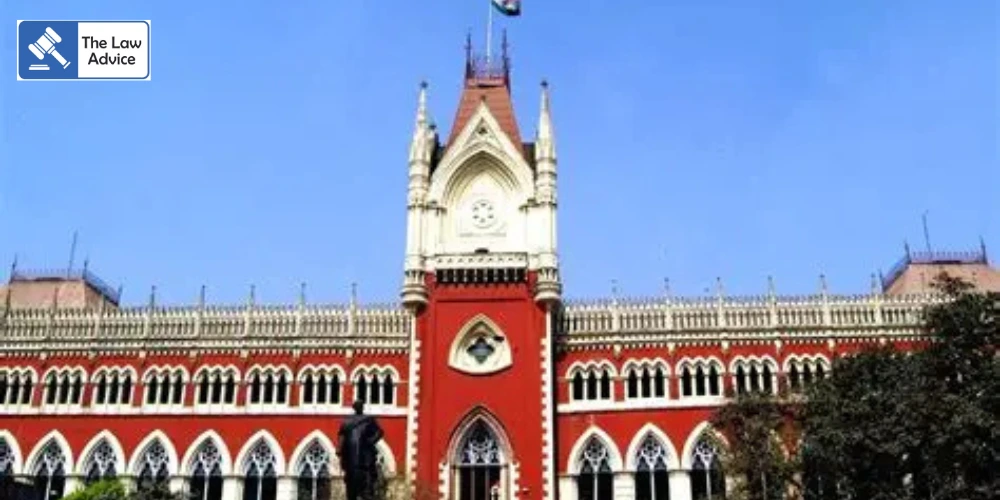The Calcutta High Court on Monday (September 8) dismissed a writ petition filed by Santanu Mukherjee, grandson of freedom fighter Gopal Chandra Mukherjee alias ‘Gopal Patha’, challenging the alleged “despicable” portrayal of his grandfather in filmmaker Vivek Agnihotri’s movie The Bengal Files.
The matter was heard by Justice Amrita Sinha, who in her order observed that the grievance raised essentially pertained to information sought under the Right to Information Act (RTI), 2005, and hence, the writ petition was not maintainable.
Quoting from the order, the Court held:
“Petitioner intended to obtain certain information under RTI. The time period within which the information ought to have been provided has expired. In the event the petitioner is aggrieved by inaction on part of the authority to provide information within the statutory time period, then the petitioner ought to avail the remedy prescribed under the RTI Act. Writ petition on said cause of action will not be maintainable. In view of the above, the writ petition fails and is hereby dismissed. It will be open for the petitioner to approach the competent forum for remedy in accordance with law if so advised.”
At the outset, counsel for the producers and director submitted that the plea was served only on Saturday and that he had been engaged late on Sunday evening. He further argued that the petition had become infructuous, since The Bengal Files had already been released.
Counsel for the Central Board of Film Certification (CBFC) submitted that the petitioner had merely filed an RTI query. Since the statutory time to respond had expired, and no appeal had been filed, the grievance could not be raised through a writ. The CBFC counsel also noted that if the petitioner considered the film defamatory, the appropriate remedy would be to initiate a defamation suit or criminal proceedings.
On the other hand, counsel for the petitioner argued that despite approaching “all possible legal instrumentalities” including the police, CBFC, and even sending legal notices to the filmmaker, no relief had been granted. The petitioner complained that the CBFC had failed to clarify whether and how the portrayal of his grandfather was evaluated by its Board Members before certification of the movie.
When asked by the Court whether a formal representation had been filed with the CBFC, the petitioner’s counsel said he had only sent emails reiterating questions. Justice Sinha, however, observed that “question and answer are different things” and that if information was denied, the RTI Act provided for appeals and remedies, which had not been pursued.
According to the plea, the petitioner alleged that the movie contained an “outright despicable” and defamatory depiction of Gopal Chandra Mukherjee, a renowned Kolkata freedom fighter, which amounted to tarnishing his legacy before the public.
• The petitioner claimed he had sent a legal notice to director Vivek Agnihotri, seeking clarification on why such portrayal was allowed, but received no response.
• He pointed out that Agnihotri himself admitted in an interview that he had received the notice.
• The petitioner also lodged complaints with the Bowbazar Police Station on July 18, 2025, and again on August 23, 2025, but alleged that no concrete action was taken.
• An RTI application was filed on August 12, 2025, seeking disclosure from the CBFC about the evaluation process and role of its members in approving the film. However, no reply was furnished.
In his petition, Santanu Mukherjee sought:
• A direction to the CBFC to initiate a probe and disclose the evaluation process of the film.
• Removal or editing of scenes allegedly tarnishing his grandfather’s image.
• Removal of defamatory content relating to his family on YouTube and other platforms.
• A direction for Vivek Agnihotri to step down as CBFC Board Member (Mumbai) until the probe was concluded, to ensure impartiality.
The Court refused to entertain the plea, emphasizing that the petitioner’s grievance lay within the ambit of the RTI framework. Since remedies were available under the RTI Act, a writ petition under Article 226 of the Constitution could not be sustained.
The Court further noted that the petitioner had not filed proper appeals or representations under the RTI Act and that the request for editing/removing film content could not be entertained in this form.
Accordingly, the writ petition was dismissed, with liberty to the petitioner to approach the competent forum.
Case Title: Santanu Mukherjee v. Union of India & Ors.
Case No.: WPA/20884/2025
